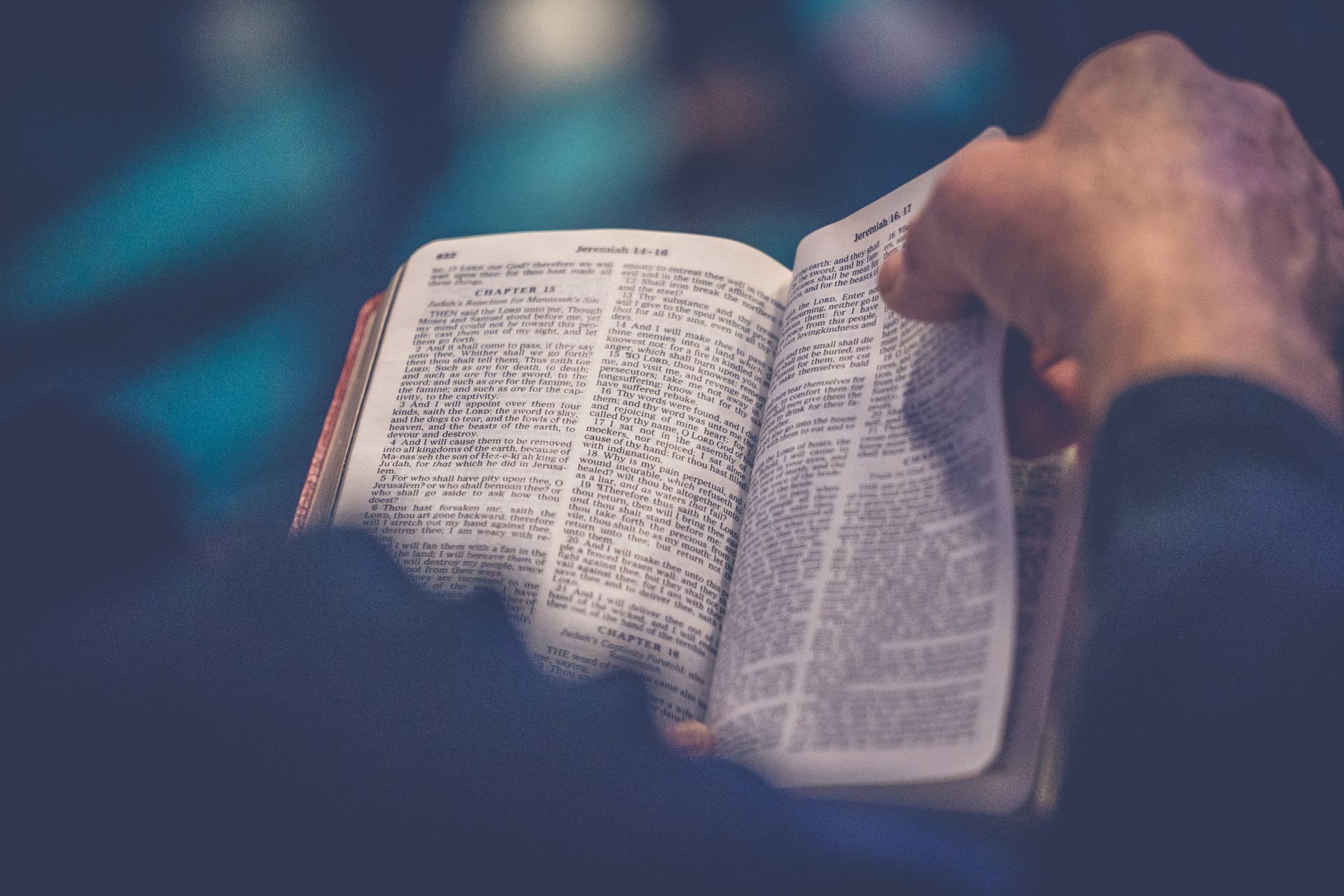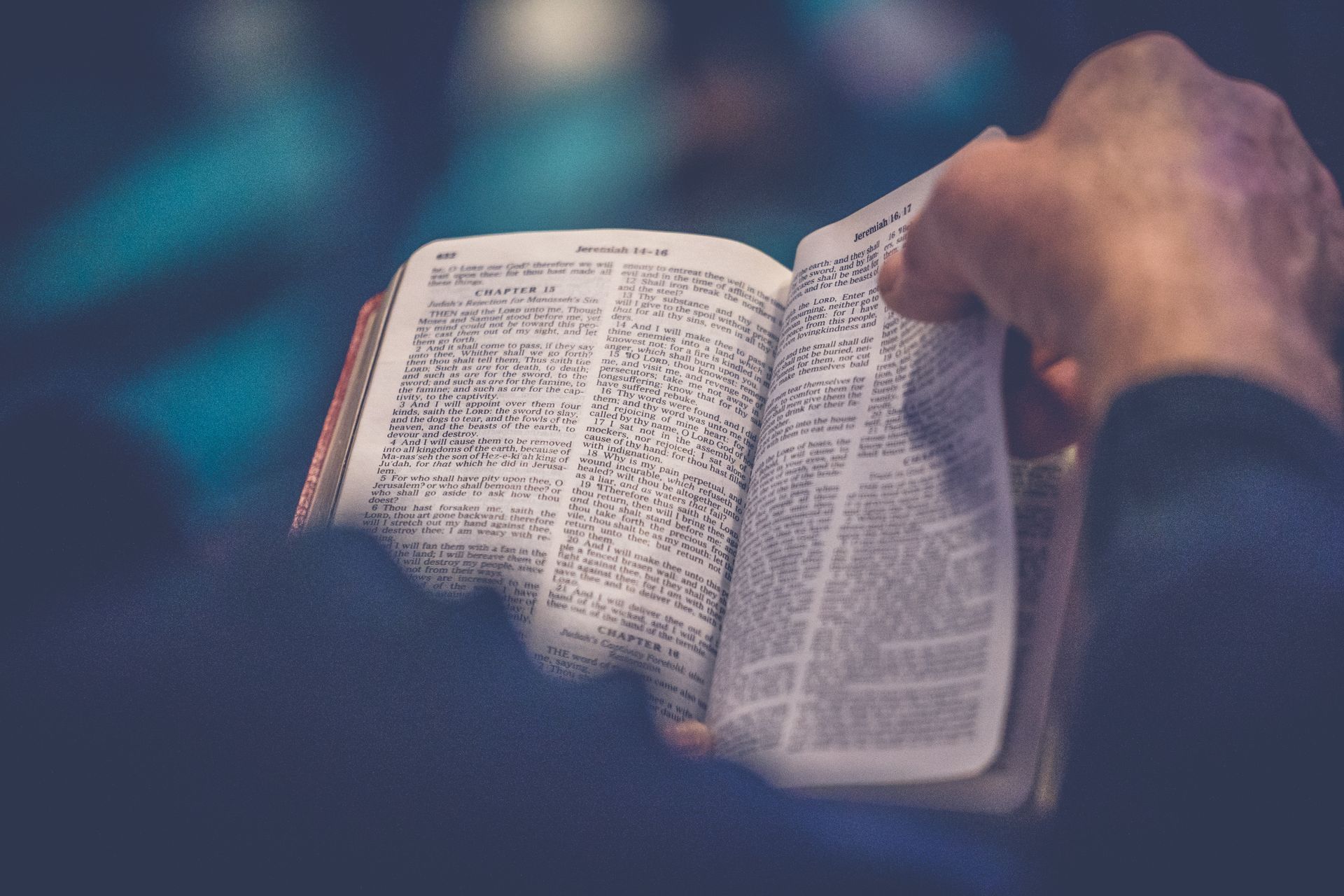Wednesday - January 31, 2024
SCRIPTURE
Mark 5. 1-20
Jesus Restores a Demon-Possessed Man
They went across the lake to the region of the Gerasenes. When Jesus got out of the boat, a man with an impure spirit came from the tombs to meet him. This man lived in the tombs, and no one could bind him anymore, not even with a chain. For he had often been chained hand and foot, but he tore the chains apart and broke the irons on his feet. No one was strong enough to subdue him. Night and day among the tombs and in the hills he would cry out and cut himself with stones.
When he saw Jesus from a distance, he ran and fell on his knees in front of him. He shouted at the top of his voice, “What do you want with me, Jesus, Son of the Most High God? In God’s name don’t torture me!” For Jesus had said to him, “Come out of this man, you impure spirit!”
Then Jesus asked him, “What is your name?”
“My name is Legion,” he replied, “for we are many.” And he begged Jesus again and again not to send them out of the area.
A large herd of pigs was feeding on the nearby hillside. The demons begged Jesus, “Send us among the pigs; allow us to go into them.” He gave them permission, and the impure spirits came out and went into the pigs. The herd, about two thousand in number, rushed down the steep bank into the lake and were drowned.
Those tending the pigs ran off and reported this in the town and countryside, and the people went out to see what had happened. When they came to Jesus, they saw the man who had been possessed by the legion of demons, sitting there, dressed and in his right mind; and they were afraid. Those who had seen it told the people what had happened to the demon-possessed man—and told about the pigs as well. Then the people began to plead with Jesus to leave their region.
As Jesus was getting into the boat, the man who had been demon-possessed begged to go with him. Jesus did not let him, but said, “Go home to your own people and tell them how much the Lord has done for you, and how he has had mercy on you.” So the man went away and began to tell in the Decapolis how much Jesus had done for him. And all the people were amazed.
WORDS OF HOPE
At first glance, this scripture seems a little weird. Jesus arrives on the other side of the sea and is confronted by a man who has made his home among the tombs, among the dead. This is his environment and his expectation based of his circumstances and Jesus meets him. Mark says that the man fell to his knees at the sight of Jesus and is confronted by his own question, “What do you want from me?” In the ensuing conversation Jesus offers him freedom from the impure spirits that had tormented him and sends them into surrounding pigs who run off, rushing down a steep bank and into a lake where they are drowned.
Those who witnessed these events, those who saw the impact of Jesus’ encounter with the man were both confused and perhaps frightened, asking Jesus to leave their region. The man is left to witness to his own people just what Jesus had done for him and, with his testimony, the people were amazed.
Of course, as with all Scripture you must be able to contextualize them within the times that they are written. Pigs are not kosher and the book of Deuteronomy states that the Israelites shall not eat their flesh or touch their dead carcass. In their tradition they are unclean, and it is understandable why pigs are used in this miracle.
The bigger story, for me, in this miracle is in the question that the man asks of Jesus, ““What do you want with me, Jesus, Son of the Most High God?” While this is a question from within him, from the “legion”, this is a question that is vital for us all.
We are so often taught a theology of asking God for things. This is not a bad thing. In my daily prayers I often find myself asking God for things, for answers, for other people to be blessed. However, it is less regular that I sit in my own life and ask God to tell me what God wants from me. Is this your story as well?
The more I thought about this today, the more I realized that perhaps, if I spent more time asking God this question, perhaps I would have more clarity for my life and my vocational work.
Believe me, I am grateful to a God who has often rescued me from numerous situations that could lead me on a destructive path or a path that is not beneficial. I am grateful to God who has offered me ways to follow the call that I believe that God has placed in front of me. I am grateful to God who reminds me every day that my everyday actions can make a difference. Today, I am convicted by the question what more can I do for God and what does God want from me.
The conclusion of this story is a testimony to what happens when you are listening to God’s response to our question. For the man in the story, he found wholeness and healing. He found a new life that bore testimony to others, leading them to belief in Jesus.
Friends, our story is a testimony for others and Jesus calls us to live our story – a story that is still evolving and not yet finished. However, this story has an impact and will help others to see your changed life. This is the miracle.
In the words of one of my favorite hymns, Amazing Grace, “I once was lost but now I’m found.”
May we take a moment, amid our asking God for blessings, to also ask God, “What do you want with me, Jesus, Son of the Most High God?”
PRAYER
God, thank you for your faithfulness toward me, hearing my prayers and responding to my needs. Hear me today, O God, as I ask You – What do you want from me? Amen.
DEVOTION AUTHOR
The Reverend Dr. Neil G. Thomas
Senior Pastor
Pronouns: he/his/him
Need Some Inspiration? Read our Daily Devotions






